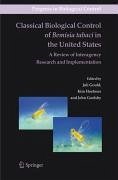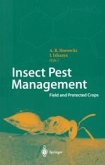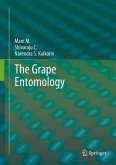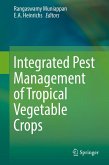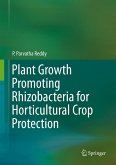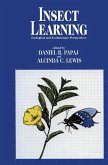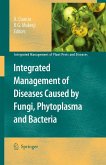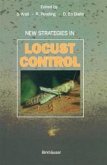Classical Biological Control of Bemisia tabaci in the United States - A Review of Interagency Research and Implementation (eBook, PDF)
Redaktion: Gould, Juli; Goolsby, John; Hoelmer, Kim


Alle Infos zum eBook verschenken

Classical Biological Control of Bemisia tabaci in the United States - A Review of Interagency Research and Implementation (eBook, PDF)
Redaktion: Gould, Juli; Goolsby, John; Hoelmer, Kim
- Format: PDF
- Merkliste
- Auf die Merkliste
- Bewerten Bewerten
- Teilen
- Produkt teilen
- Produkterinnerung
- Produkterinnerung

Hier können Sie sich einloggen

Bitte loggen Sie sich zunächst in Ihr Kundenkonto ein oder registrieren Sie sich bei bücher.de, um das eBook-Abo tolino select nutzen zu können.
This book reviews the interagency research and development effort on classical biological control in the USA from 1992-2002. The successful exploration, importation, screening, evaluation, rearing, and establishment of at least five exotic Bemisia. tabaci natural enemies in rapid response to the devastating infestations in the USA is a landmark in interagency cooperation and coordination of multiple disciplines. In this volume, the various authors present detailed reviews of natural enemy exploration, introduction, and evaluation efforts that will serve as a guide to support and encourage…mehr
- Geräte: PC
- ohne Kopierschutz
- eBook Hilfe
- Größe: 8.05MB
![Insect Pest Management (eBook, PDF) Insect Pest Management (eBook, PDF)]() Insect Pest Management (eBook, PDF)113,95 €
Insect Pest Management (eBook, PDF)113,95 €![The Grape Entomology (eBook, PDF) The Grape Entomology (eBook, PDF)]() M. ManiThe Grape Entomology (eBook, PDF)113,95 €
M. ManiThe Grape Entomology (eBook, PDF)113,95 €![Integrated Pest Management of Tropical Vegetable Crops (eBook, PDF) Integrated Pest Management of Tropical Vegetable Crops (eBook, PDF)]() Integrated Pest Management of Tropical Vegetable Crops (eBook, PDF)129,95 €
Integrated Pest Management of Tropical Vegetable Crops (eBook, PDF)129,95 €![Plant Growth Promoting Rhizobacteria for Horticultural Crop Protection (eBook, PDF) Plant Growth Promoting Rhizobacteria for Horticultural Crop Protection (eBook, PDF)]() P. Parvatha ReddyPlant Growth Promoting Rhizobacteria for Horticultural Crop Protection (eBook, PDF)137,95 €
P. Parvatha ReddyPlant Growth Promoting Rhizobacteria for Horticultural Crop Protection (eBook, PDF)137,95 €![Insect Learning (eBook, PDF) Insect Learning (eBook, PDF)]() Insect Learning (eBook, PDF)161,95 €
Insect Learning (eBook, PDF)161,95 €![Integrated Management of Diseases Caused by Fungi, Phytoplasma and Bacteria (eBook, PDF) Integrated Management of Diseases Caused by Fungi, Phytoplasma and Bacteria (eBook, PDF)]() Integrated Management of Diseases Caused by Fungi, Phytoplasma and Bacteria (eBook, PDF)217,95 €
Integrated Management of Diseases Caused by Fungi, Phytoplasma and Bacteria (eBook, PDF)217,95 €![New Strategies in Locust Control (eBook, PDF) New Strategies in Locust Control (eBook, PDF)]() New Strategies in Locust Control (eBook, PDF)40,95 €
New Strategies in Locust Control (eBook, PDF)40,95 €-
-
-
Dieser Download kann aus rechtlichen Gründen nur mit Rechnungsadresse in A, B, BG, CY, CZ, D, DK, EW, E, FIN, F, GR, HR, H, IRL, I, LT, L, LR, M, NL, PL, P, R, S, SLO, SK ausgeliefert werden.
- Produktdetails
- Verlag: Springer-Verlag GmbH
- Seitenzahl: 343
- Erscheinungstermin: 1. März 2008
- Englisch
- ISBN-13: 9781402067402
- Artikelnr.: 37343672
- Verlag: Springer-Verlag GmbH
- Seitenzahl: 343
- Erscheinungstermin: 1. März 2008
- Englisch
- ISBN-13: 9781402067402
- Artikelnr.: 37343672
